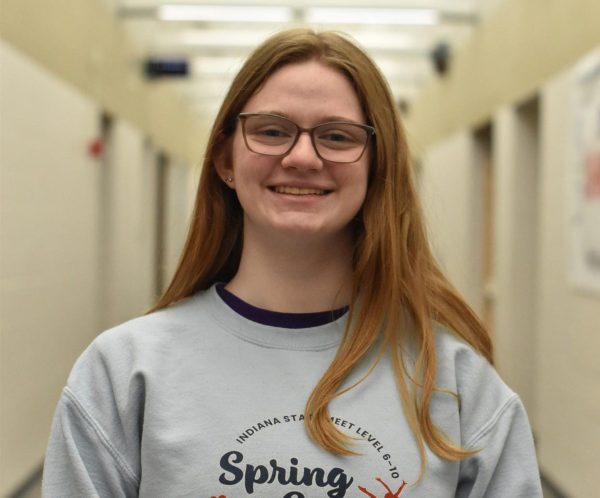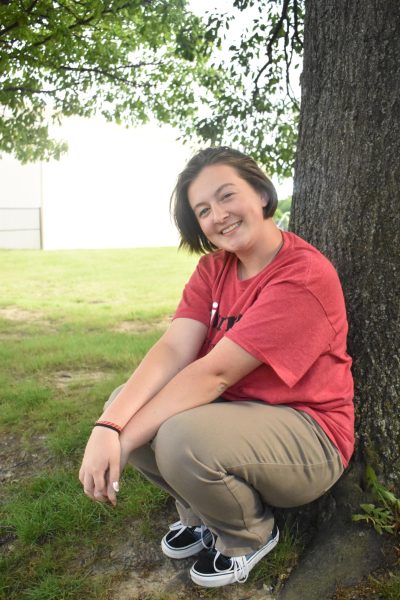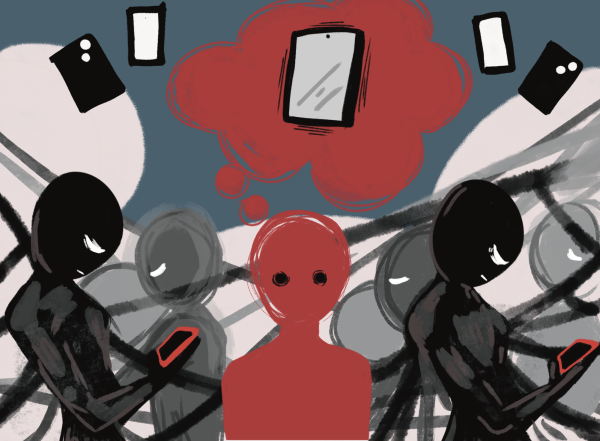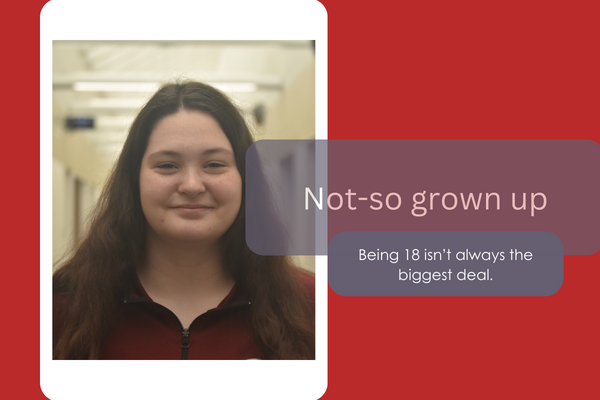The need for understanding
Bullying at SHS should be taken more seriously by adults
The adults in our lives try to downplay our issues by saying that we’ll overcome them, but with all the new technology my generation is growing up with, it makes it harder to stop most toxic situations. I’ve experienced verbal bullying, such as being called names in the hall and having rumors spread about me in school and online. I’ve also had people talking behind my back and have experienced physical threats about being beaten. I’ve lost many friends, and when I’ve tried to resolve the situations, they have only gotten worse. I’ve tried to talk to my counselor, school social worker, my father and trusted teachers, but I feel like they never take me seriously because of my age.
SHS’s stance against bullying, according to the school’s website, is that bullying and cyberbullying are taken very seriously. The administration responds to reports of bullying and cyberbullying in obedience to the Indiana Department of Education guidelines, which provides adults with information on how to protect their kids from cyberbullying and how the community can help. However, as a teen myself, I do not find these sources to be helpful on a case-by-case basis. The material overgeneralizes bullying and does not prove engaging to me or, I would bet, to most students.
It’s challenging to recognize the difference between bullying and an argument. The school cannot classify whether a case reported is a one time offense or a case in which someone retaliates. According to the administration of Southport High School, the school takes this very seriously, though it is difficult to prove bullying. On the side of adults/administration, they review every case reported, either online or in school. The new camera system helps document cases in the hall, and there are adults trained to dive into online accusations.
I get that teenagers can overdramatize a situation and react without thinking, causing the situation to escalate. However, bullying in school does not occur as often or as dramatically as shown in T.V. shows or movies. I’ve reported situations. I’ve talked to my counselor, but all I’ve been told is to ”ignore the haters,” and if that doesn’t work, try peer mediation. The thing is that, in my experience, peer mediation doesn’t work either. After I did it the first time, the bullying didn’t stop. I was still talked about within my friend group. When I tell adults what is happening at school or online, they blamed my old friend group, my immaturity or social media because those are known to start drama. For me, the bullying that occurs in school is usually name-calling and spreading rumors. My experiences in the halls have made me feel unsafe, unwanted and like I am a target.
Some students feel that the administration tells students they have filed their report just to appease them. My interactions with the administration have proven to be dismissive. Teens like myself understand that change is not instantaneous, but we can all agree that change should be prioritized and not thrown by the wayside. The problems we teens face day to day, with distractions in class caused by others, the stress of school and problems at home, are severely harming our mental health. This isn’t a fabricated excuse to receive attention. This is a pressing issue. If adults do not take these complications and our cries for help seriously, then there can be destructive consequences.
Struggling with self-harm has remained a big part of my life. A few of my classmates have struggled too. Nowadays, parents tend to be naive when it comes to engaging with their children about self-harm. I’ve tried talking to my father about the situations at school, and he goes on rants about social media and how he didn’t have to deal with this drama when he was younger. When I’d have panic attacks or when I’d be so overwhelmed with stress, I’d tell him about it when he asked how my day was. He’d tell me that these “little” panic attacks or anxiety attacks are nothing, or at least that’s how I interpreted the whole conversation. When I try to talk about my problems to adults or even some of my friends, I feel like I’m not taken seriously. I know that my father is trying, but to me, it seems like he doesn’t try to sympathize. Maybe he just doesn’t understand how teens work in this new age.
According to teenmentalhealth.org, teenage self-harm is done to reduce stress and sadness, to punish oneself due to self-hatred or to escape the feeling of numbness. I’ve experienced most of these reasons. Most of my self-harm is caused by the stress of not being good enough for my father, friends and even strangers. I tend to think that because I’m not as pretty as other girls, that I’m not good enough or that I don’t deserve some things. With all the rumors towards me, it really hurts my self-esteem, which can cause me to want to hurt myself. This isn’t a game or some childish, overdramatic tactic teenagers are using to get attention or gain popularity. This is a real issue, and I believe that adults don’t prioritize our problems as much as they should.
I disconnected from peers to help with the stress of really everything in my life, and although it was hard, I did it all by myself. I stopped associating with everyone within the group where bullying took place. I’ve found my best friend, and he has helped me a lot. He’s a great source to talk to about what’s going on because he gets what I’m going through. He and a few others are the reasons I’m so happy now and why I didn’t let these bullies get to me. I’ve kept my head high, and I’ve ignored their hatred and it worked. I confided in the people who I’ve known and trusted for a long time.
Change starts with understanding. We teens need to be listened to and not dismissed. Adults should place themselves in our shoes and try to sympathize with us before providing advice. It’s hard when others, especially authorities and trusted figures, tell us our problems aren’t valid. It adds stress and eventually, we burst. We need adults there to help calm us down, to listen and give us advice. Otherwise, this leaves teens with seemingly nowhere to turn. The effects of that could be lethal.

Hello! My name is Trinity Trent. I am currently a sophomore at SHS. This is my first time working for The Journal. I am the artist for The Journal this...







